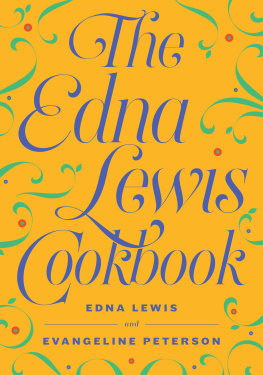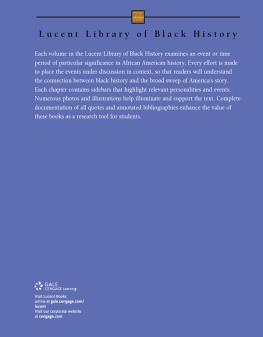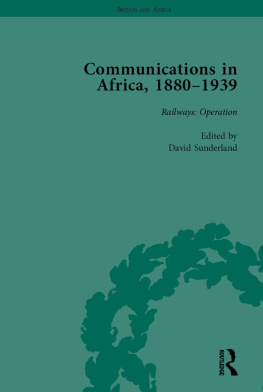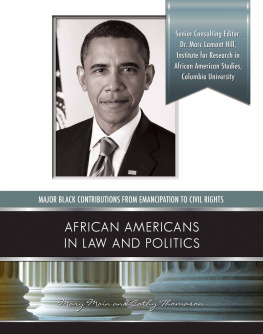To Make Our World Anew

To live with and care for ones family without fear of separationsomething that had been denied to slavesWas a goal for blacks after the Civil War. This family was photographed in 1886.
To Make Our World Anew
Volume One: A History of African Americans to 1880
edited by
Robin D. G. Kelley
and
Earl Lewis


Oxford University Press, Inc., publishes works that further
Oxford Universitys objective of excellence
in research, scholarship, and education.
Oxford New York
Auckland Cape Town Dar es Salaam Hong Kong Karachi
Kuala Lumpur Madrid Melbourne Mexico City Nairobi
New Delhi Shanghai Taipei Toronto
With offices in
Argentina Austria Brazil Chile Czech Republic France Greece
Guatemala Hungary Italy Japan Poland Portugal Singapore
South Korea Switzerland Thailand Turkey Ukraine Vietnam
Copyright 2000 by Oxford University Press, Inc.
Preface 2005 by Oxford University Press, Inc.
The First Passage 1995, 2000, 2005 by Colin A. Palmer
Strange New Land 1996, 2000, 2005 by Peter H. Wood
Revolutionary Citizens 1997, 2000, 2005 by Daniel C. Littlefield
Let My People Go 1996, 2000, 2005 by Deborah Gray White
Breaking the Chains 1996, 2000, 2005 by Noralee Frankel
To You is reproduced from COLLECTED POEMS by Langston Hughes
Copyright 1994 by the Estate of Langston Hughes
Reprinted by permission of Alfred A. Knopf, a Division of Random House, Inc.
First published by Oxford University Press, Inc., 2000
198 Madison Avenue, New York, New York 10016
www.oup.com
First issued as a two-volume Oxford University Press paperback, 2005
Vol. 1 ISBN-13: 978-0-19-518134-0
Vol. 1 ISBN-10: 0-19-518134-4
Vol. 2 ISBN-13: 978-0-19-518135-7
Vol. 2 ISBN-10: 0-19-518135-2
Oxford is a registered trademark of Oxford University Press
All rights reserved. No part of this publication may be reproduced,
stored in a retrieval system, or transmitted, in any form or by any means,
electronic, mechanical, photocopying, recording, or otherwise,
without the prior permission of Oxford University Press.
The Library of Congress has cataloged the one-volume cloth edition as follows:
To make our world anew: a history of African Americans / edited by Robin
D. G. Kelley and Earl Lewis.
p. cm. Includes bibliographical references (p.) and index.
ISBN-13: 978-0-19-513945-7
ISBN-10: 0-19-513945-3
1. Afro-AmericansHistory. I. Kelley, Robin D. G. II. Lewis, Earl.
E185.T68 2000 973.0496073dc21 00-021131
1 3 5 7 9 1 0 8 6 4 2
Printed in the United States of America on acid-free paper
Contents
Colin A. Palmer
Peter H. Wood
Daniel C. Littlefield
Deborah Cray White
Noralee Frankel
To You
To sit and dream, to sit and read,
To sit and learn about the world
Outside our world of here and now
Our problem world
To dream of vast horizons of the soul
Through dreams made whole,
Unfettered freehelp me!
All you who are dreamers, too,
Help me make our world anew
I reach out my hands to you.
Langston Hughes
Preface to Volume One
Robin D. G. Kelley and Earl Lewis
T he history of African Americans is nothing less than the dramatic saga of a people attempting to re-make the world. Brought to the Americas against their will as commodities to be bought and sold, Africans and their descendants struggled to change their conditions and thus turn the New World of their European masters upside down. Even when they did not succeed, the actions, thoughts, and dreams of Africans are responsible for some of the most profound economic, political, and cultural developments in the modern West. Black labor generated unprecedented wealth and helped give birth to capitalism; black resistance slowly destroyed the system of slavery and prompted new methods of coercion and punishment; black creativity influenced virtually all forms of Western artfrom music and dance to theater and the plastic arts; black visions of freedom and efforts to realize them not only transformed American politics but inspired uprisings the world overfrom South Africa to Tiananmen Square. Indeed, by invoking Langston Hughess call to make the world anew, we recognize that African Americans historically understood their plight and their possibilities in global terms. For if this book demonstrates anything, it is that African Americans saw themselves as both Americans and part of a larger, international black diaspora. To Make Our World Anew tells the story of the nation but places the struggles and achievements of black people in a larger international framework.
The history of African Americans begins on the African continent, a huge and varied land bounded by the Atlantic and Indian Oceans. It was home to people with different languages, traditions, histories, and religions. They called themselves Twi, Yoruba, Ethiopian, Zulu, Ashanti, and Kumba among other names. Some lived in ancient kingdoms as old as the annals of recorded history, and others lived in small family groupings. Some worshipped one god, and others many gods. Some lived in societies headed by powerful men, and others by powerful women. Whether in cities or rural areas, whether Muslim, Christian, or other, the peoples of this amazing continent had long played a central role in world affairs. Egyptian advances in medicine, language, and architecture greatly influenced the Greek and Roman worlds. Gold from the Bure and Bambuk goldfields of West Africa made its way into the Mediterranean world, where the accumulation of significant quantities enabled the merchants of Genoa (Italy) to underwrite European exploration and expansion. Likewise, notable learning centers like Timbuktu attracted visitors from Europe and the Orient, and greatly enriched the Islamic world.
The roles of Africans in world affairs changed significantly with the rise of the South Atlantic System. As European explorers made their way to the Americas, they expected to find streets paved with gold. The Americas were indeed rich in natural resources, but the bounty had to be excavated, cultivated, and processed. Labor was needed. The Europeans had already begun exploiting African labor on plantations in the Mediterranean and off the coast of West Africa, so the modern worlds turn to Africa as a reservoir of slaves was not surprising. What followed was the forced migration and enslavement of several million Africans of varied ethnic backgrounds. Although scholars debate the exact numbers, it is understood that somewhere between ten and twenty million people became part of the system of enslavement that ultimately led to the making of an African diaspora and African Americans. Many died in the trek from the interior to the coast, others during the wait for a slave ship, and scores of others during the harsh Middle Passage. Out of the crucible of their suffering was forged a new peopleno longer simply Twi, Yoruba, Ashanti, or Kumba. In the Americas, they first became Africans and then African Americans. This process of people making is central to a complete understanding of African-American history.
Next page









